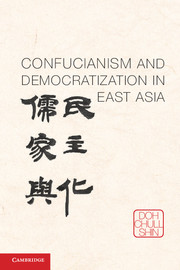7 - Conceptions of Democracy
from Part iv - Embracing Democracy
Published online by Cambridge University Press: 05 June 2012
Summary
Democracy is government by the people. As such, it requires citizens who are informed and active in the political process. In principle, therefore, a democratic government cannot be foisted on citizens who are unwilling to embrace and support it as the preferred alternative to all forms of nondemocratic government. Nor can it, in practice, survive and flourish for an extended period of time unless citizens can recognize its virtues and distinguish democratic practices from undemocratic ones (Griffith et al.1956, 129).
Thus, to survive and develop over time, new democracies – or those that have been democracies for awhile but do not yet function as full democracies – must transform their citizens (Dahl 1997; Dalton 2008; Diamond 1997; Putnam 1993; Shin 2007). The first step in this transformation is education: Citizens must understand what constitutes democracy and be able to differentiate it from its alternatives. The next step is internalization: Citizens must develop a conviction of the virtues of democratic rule, and this conviction must in turn lead to an acceptance of democracy as “the only game in town” (Linz and Stepan 1996). Only with informed and continuing support from the mass citizenry can limited democracies grow into fully functioning democracies (Rose and Shin 2001). Those citizens who express such support can be called democrats with a small “d” – functioning citizens of a democratic state.
- Type
- Chapter
- Information
- Confucianism and Democratization in East Asia , pp. 221 - 266Publisher: Cambridge University PressPrint publication year: 2011

